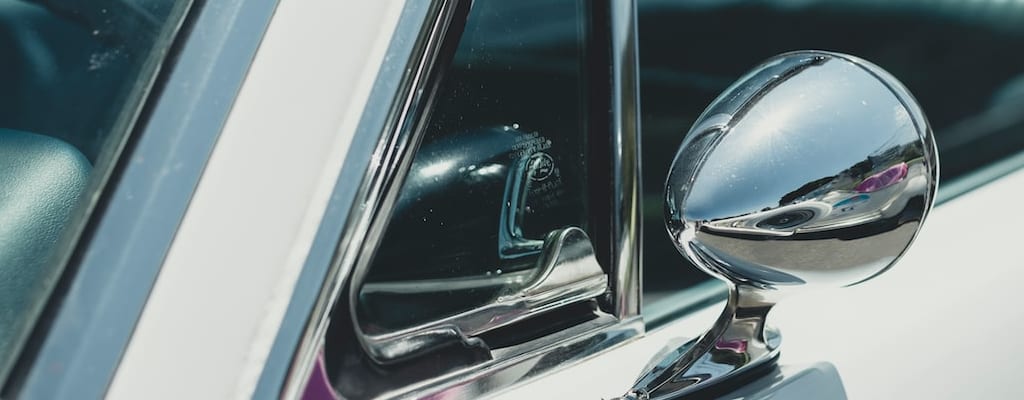worse for wear: Idiom Meaning and Origin
What does ‘worse for wear’ mean?
The idiom worse for wear means to be in a deteriorated or damaged condition due to use or age.

Idiom Explorer
The idiom "wrack and ruin" conveys the idea of complete destruction or extreme deterioration. It is often used to describe the state of something that has been severely damaged or ruined beyond repair. The phrase combines the words "wrack," meaning to wreck or destroy, and "ruin," meaning the state of being destroyed or in decay.
The idiom "worst comes to worst" means in the worst case scenario or in the most extreme situation possible.
The idiom "worse for liquor" is used to describe someone who is visibly affected by the consumption of alcohol, often implying that they are behaving in a reckless or foolish manner.
The idiom "wear thin" means to gradually lose one's patience, endurance, or tolerance towards something or someone. It implies that the situation or person is becoming annoying, irritating, or tiresome over time.
The idiom "wear out one's welcome" means to stay somewhere long enough that one is no longer welcome or desired.
The idiom "waste away" means to gradually become weaker, thinner, or less healthy, often due to illness or lack of proper care. It implies a continuous decline in physical condition or overall well-being.
The idiom "washed out" means to be exhausted or worn out, both physically and emotionally. It can also refer to something that appears faded or lacking in color or intensity.
The idiom "the wheels fell off" is used to describe a situation where something that was once functioning smoothly suddenly goes wrong or falls apart completely.
The idiom "take its toll" means that something has a negative impact or effect on someone or something, usually resulting in damage, exhaustion, or loss. It implies that there are consequences or consequences to be paid for a particular action or situation.
The idiom "take a turn for the worse" means that a situation or someone's condition has deteriorated or become more negative than before.
Decoding Disheveled Tale
The idiom "worse for wear" is a common phrase used to describe something or someone that appears damaged, worn out or in poor condition. Its origin and usage can be traced back to the mid-19th century in the United States. The phrase is often used in informal conversations, literature, and media to convey the decline or deterioration of something or someone.
The meaning of "worse for wear" is easy to understand. It suggests that the subject being referred to has experienced wear and tear, resulting in a diminished state compared to its original condition. The idiom implies that the object or person has undergone significant use, hardship, or the passage of time, leading to visible signs of damage.
For example, if someone says, "After her long hiking trip, she looked worse for wear," they are indicating that the person's appearance has deteriorated due to the physical challenges and strain endured during the trip. Similarly, if one were to say, "The old car is definitely worse for wear," it implies that the vehicle's condition has deteriorated over time, showing visible signs of aging and diminished functionality.
The idiom "worse for wear" is often used in contexts related to physical objects, personal appearance, or the general wear and tear of life. It can be seen in literature, movies, and everyday conversations. Its universality allows the idiom to resonate with a wide range of people, further solidifying its place in common vernacular.
While the exact origin of this idiom is uncertain, the individual words that make up the phrase provide insight into its intended meaning. "Worse" suggests a decline or deterioration compared to a previous state, while "wear" refers to the impact of time or use on an object or person. When combined, the idiom implies a noticeable worsening or decline in condition resulting from prolonged use or exposure.
Using the idiom "worse for wear" allows individuals to succinctly convey the idea of physical deterioration or the toll taken by life's challenges. The idiom paints a vivid picture of something or someone that has visibly suffered from usage, time, or hardship. It serves as a reminder of the transience and fragility of the physical world, as well as the resilience and fortitude required to navigate it.
Therefore, the idiom "worse for wear" plays a crucial role in the English language by providing a concise and vivid way to express the visible effects of wear and tear on objects and individuals. Its enduring popularity and frequent usage are a testament to its effectiveness in communicating the concept of deterioration and the inevitable tolls of time.
The idiom "worse for wear" shares a similar meaning with the idioms "take a turn for the worse" and "worse for liquor." Just like "worse for wear," these idioms convey a decline or deterioration in condition.
"Take a turn for the worse" is commonly used to describe a negative change or deterioration in a situation, often referring to someone's health. For example, if someone says, "After three days in the hospital, his condition suddenly took a turn for the worse," they are indicating that the person's health significantly deteriorated. This idiom emphasizes the sudden and negative change in a situation, similar to how "worse for wear" emphasizes the visible signs of deterioration.
"Worse for liquor" is a variation of the idiom "worse for wear" specifically used to describe the negative effects of consuming alcohol. If someone says, "After a night of heavy drinking, he looked worse for liquor," they are suggesting that the person's appearance or behavior has visibly declined due to the consumption of alcohol. This idiom highlights the physical and behavioral effects of liquor, similar to how "worse for wear" highlights the visible effects of wear and tear.
Example usage
Examples of how the idiom "worse for wear" can be used in a sentence:
- After a night of heavy drinking, he woke up the next morning feeling much worse for wear.
- The old car had been through many rough adventures and was looking worse for wear.
- She arrived at the party looking disheveled and worse for wear after a long day at work.
More "Condition" idioms



